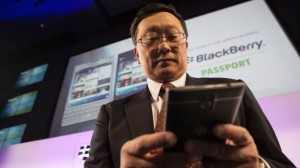In an article on The Globe and Mail, I read that BlackBerry is looking to expand into the Chinese market after their CEO, John Chen, met with executives from Xiaomi Corp and Lenovo Group Ltd this past week. Although this may seem like a possibly lucrative deal for BlackBerry, with sales in their current market failing to meet expectations, I believe it is a move in the wrong direction.
In my opinion, BlackBerry is looking at the big picture before addressing the issues they are facing within their local environment. Even with the recent introduction of the Passport, the current BlackBerry line-up is seemingly outdated to most consumers in the North American market. Therefore, expanding at this time is not an ideal decision as the Chinese market poses even greater competition and an unnecessary hurdle during a difficult period in the company’s history. Instead of gaining exposure on their existing products through the vast Chinese market, I believe BlackBerry must focus on the innovation of their future products and conduct extensive research of their current market in order to compete with the likes of Apple and to fully maximize the potential for consumer satisfaction.
Through market research and innovation, BlackBerry can test the demand of its new concept on the North American market, before deciding to expand to foreign markets. Otherwise, they will inevitably suffer from the continued exposure of its outdated products on a global scale, at a time when BlackBerry cannot afford another setback.
References

